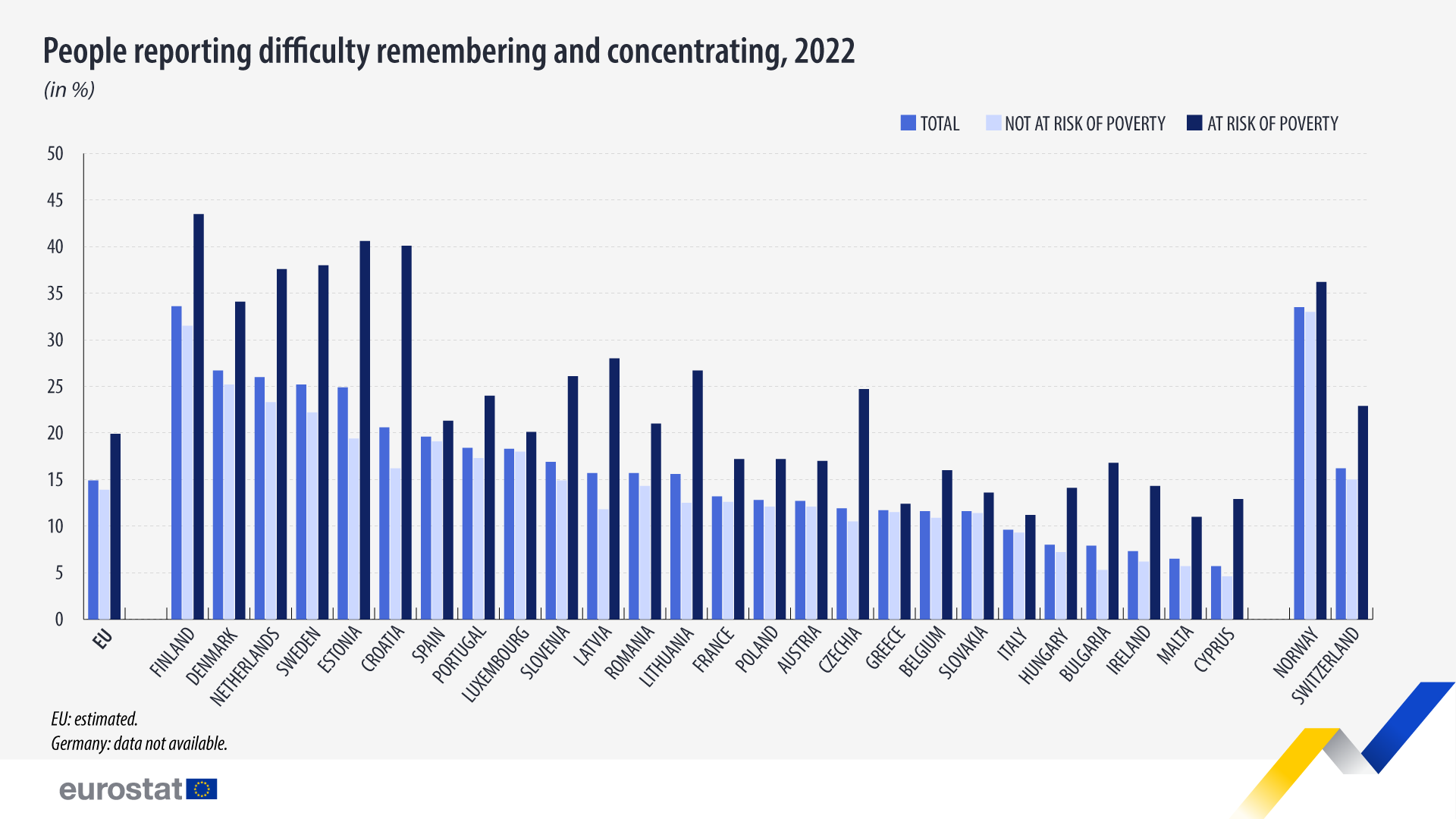15% EU people reported memory and concentration issues

In 2022, 14.9% of people in the EU reported moderate or severe difficulty with remembering or concentrating.
Among the EU countries, the highest shares of people facing difficulties in remembering or concentrating were recorded in Finland (33.6%), Denmark (26.7%), the Netherlands (26.0%), Sweden (25.2%) and Estonia (24.9%). In contrast, the lowest percentages were reported in Cyprus (5.7%), Malta (6.5%), Ireland (7.3%), Bulgaria (7.9%) and Hungary (8.0%).
Memory and concentration issues more frequent among at-risk-of-poverty people
When considering the at-risk-of-poverty (AROP) threshold, notable disparities emerge in the percentage of people experiencing memory or concentration difficulties. Among those not at risk, at EU level, 13.9% reported such difficulties, whereas the figure increased to 19.9% for people at risk of poverty.
Source dataset: ilc_hch19
Some EU countries recorded disparities exceeding 20 percentage points (pp) in reported difficulties with remembering and concentrating between individuals at risk of poverty and those not at risk. Specifically, the gap recorded in Croatia was 23.9 pp (16.2% of those not at risk of poverty reporting difficulties in remembering or concentrating, compared with 40.1% for people at risk of poverty) and in Estonia it was 21.2 pp (19.4% compared with 40.6%). Significant differences were also observed in Latvia (16.2 pp), Sweden (15.8 pp) and the Netherlands (14.3 pp).
For more information
Methodological notes
- Difficulty in remembering or concentrating covers a variety of problems with cognitive functions including a person’s difficulty in finding their way around or not being able to concentrate on what they’re doing, or forgetting where they are or what month it is. A person who has cognitive difficulties may not remember what someone has just said to them or seem confused about or frightened by several things. However, difficulties remembering or concentrating because of common everyday situations such as a high workload or stress, or as a result of substance abuse are not included in the scope. The statistical variables underlying this and other health problems covered by this indicator were developed by the Washington Group on Disability Statistics and were collected by Eurostat in the 2022 3-year rolling module on ‘Health’.
- Figures are expressed as shares out of the respective at-risk-of-poverty category.
- Germany: data not available due to low reliability
- EU level: estimated
If you have any queries, please visit our contact us page.

